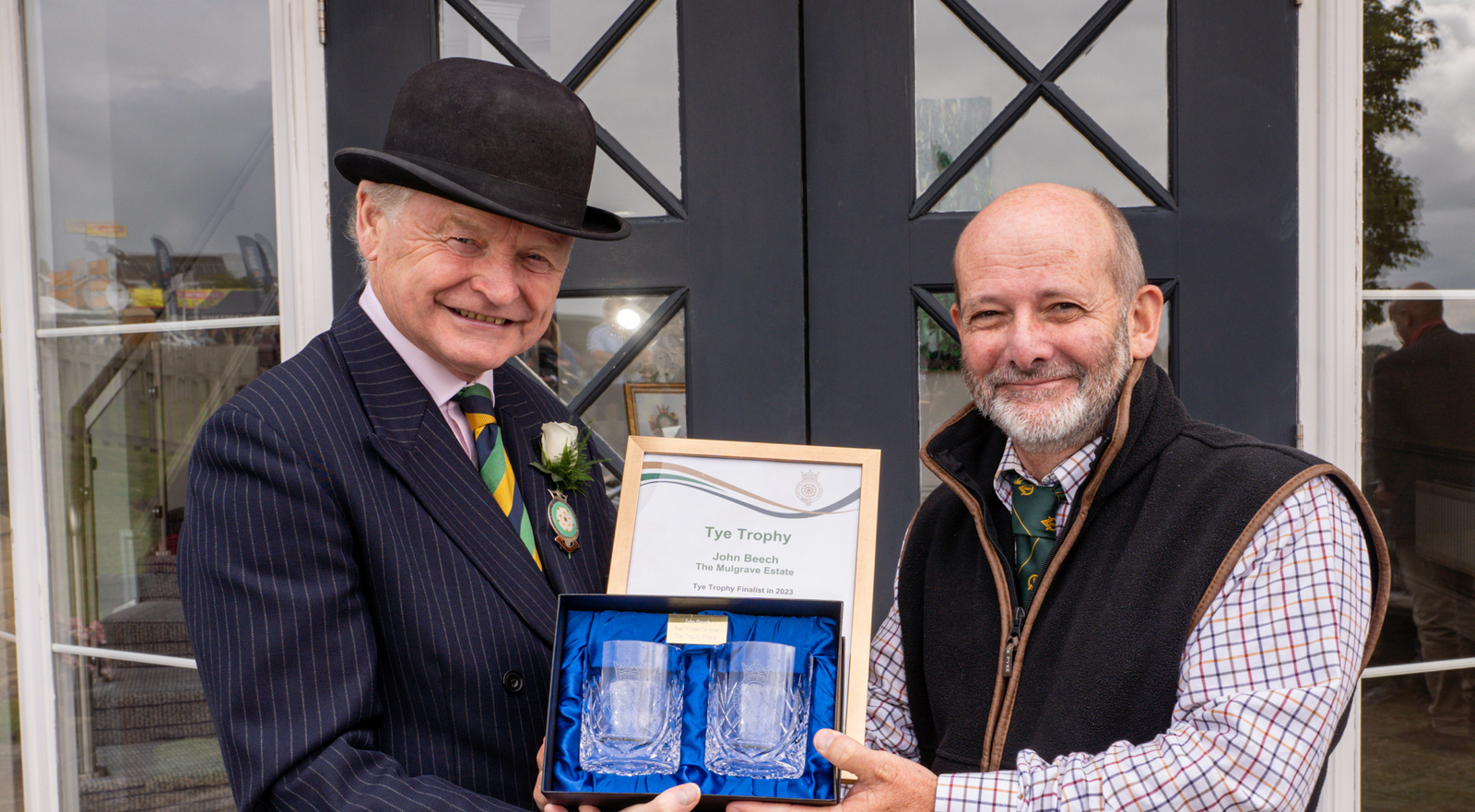The Mulgrave Estate has been honoured as one of the best examples of farming conservation in Yorkshire.
The 15,000-acre estate, based at Mulgrave Castle, near Whitby, was a runner-up in the East Yorkshire region category of the prestigious Tye Trophy.
John Beech, Mulgrave’s assistant rural surveyor, was presented with a certificate and engraved crystal glasses at this month’s Great Yorkshire Show to recognise this achievement.
The presentation was made by Simon Theakston, the president of the Yorkshire Agricultural Society.
John commented: “This award is a tremendous honour for the Estate and a reward for all our hard-working farming team who ensure that conservation and environmental improvements are at the very top of our farming agenda.
“At Mulgrave we firmly believe that farming, wildlife and nature conservation can co-exist and this forms the basis of all that we do on the farm – from rain water harvesting to enough wild bird and pollinator plots equal to over 160 premier league football pitches, we like to think we are championship farmers.
“The Tye Trophy is extremely well-respected because it is judged purely by farmers. It makes us very proud to be recognised by our peers in this way and we will continue to make every effort to pursue and implement conservation initiatives. It will act as an inspiration in the coming months and years.
“During the past five years, several important wildlife habitats have been brought back into environmental management, including moorland where drainage grips have been blocked to re-wet the moor, introducing conservation grazing using native breeds to benefit upland waders such as Curlew and Lapwing, drilling 277 acres of winter bird food, pollen and nectar mixes and digging 15 ponds and scrapes on marginal land for freshwater pond species.
“Restoring 10,000m of traditional field boundaries such as dry-stone walls and hedgerows have been undertaken along with planting 27,500 native trees on non- productive farmland. Barn Owls are now a common sight around the farm after installing 12 several nest boxes in various farm buildings across the Estate. We now have 12 rainwater harvesters holding 360,000 litres of rainwater from the roofs of the farm buildings and are about to install a solar panel array on the grain sheds to make us more energy sustainable in the future.”
John added: “We are primarily a commercial farm growing over 1,000 acres of cereals with Winter Wheat, Spring and Winter Barley and Oil Seed Rape grown in rotation around the fields. However, every opportunity is taken to maintain and encourage wildlife to the farm wherever possible and we will continue to adopt this approach in the future.
A spokesman for the Yorkshire Agricultural Society, who thanked the estate for its “excellent” submission, explained that judging was based on the integration of wildlife conservation and environmental improvement within a commercial farming operation.
Now in its 14th year, the Tye Trophy continues a long tradition of using competition to highlight some of the best farms in the North and how they are prioritising conservation, the environment and improvement.
Late last year the Mulgrave Estate in the North York Moors completed a pioneering £20,000 wetlands project which enhanced biodiversity and nurture wildlife on its land.
The Mulgrave Estate has been the Marquis of Normanby’s family seat since the 18th century. The Marquis himself is a keen conservationist, with a special interest in sustainability and woodland conservation.






